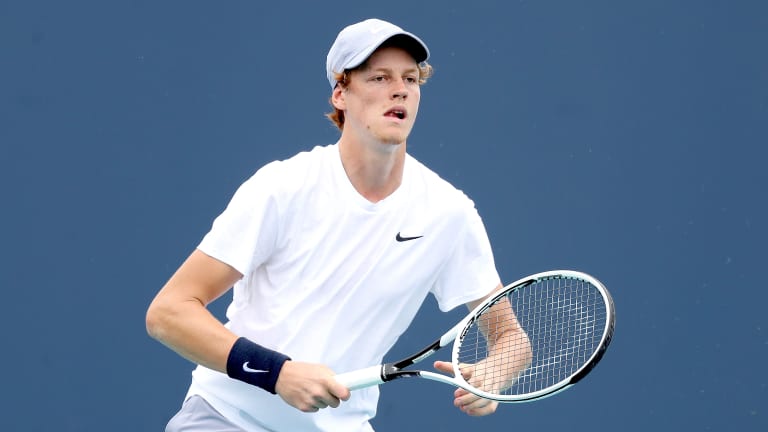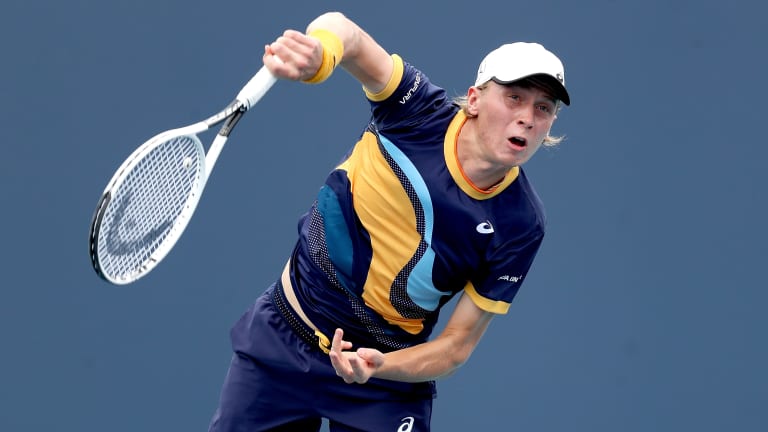Miami, USA
Jannik Sinner dominates fellow fast-riser Emil Ruusuvuori in Miami
By Mar 30, 2021Miami, USA
Jannik Sinner tops Grigor Dimitrov for Miami Open title
By Mar 31, 2024Miami, USA
Danielle Collins won an emotional title, while Jannik Sinner won a logical one, at the Miami Open
By Mar 31, 2024Miami, USA
Danielle Collins wins Miami Open on her final try, topping Elena Rybakina in straight sets
By Mar 30, 2024Miami, USA
Danielle Collins defeats Elena Rybakina for Miami Open title, the biggest title of her career
By Mar 30, 2024Miami, USA
What will be stronger in Miami: Jannik Sinner's rise, or Grigor Dimitrov's renaissance?
By Mar 30, 2024Miami, USA
Jannik Sinner, Grigor Dimitrov advance to Miami Open final
By Mar 30, 2024Miami, USA
Who Will Win: Jannik Sinner or Grigor Dimitrov, 2024 Miami Open men's final
By Mar 30, 2024Miami, USA
Who Will Win: Danielle Collins or Elena Rybakina, 2024 Miami Open women's final
By Mar 29, 2024Miami, USA
2024 Miami Open women's final preview: Elena Rybakina vs. Danielle Collins is always 'neck and neck'
By Mar 29, 2024Miami, USA
Jannik Sinner dominates fellow fast-riser Emil Ruusuvuori in Miami
This has been a week of meteoric progress for the 19-year-old Italian, who has reached his first Masters 1000 quarterfinal by “quietly making his way” through a draw.
Published Mar 30, 2021
Advertising

Jannik Sinner dominates fellow fast-riser Emil Ruusuvuori in Miami
© Getty Images
Advertising

Jannik Sinner dominates fellow fast-riser Emil Ruusuvuori in Miami
© Getty Images
Advertising

Jannik Sinner dominates fellow fast-riser Emil Ruusuvuori in Miami